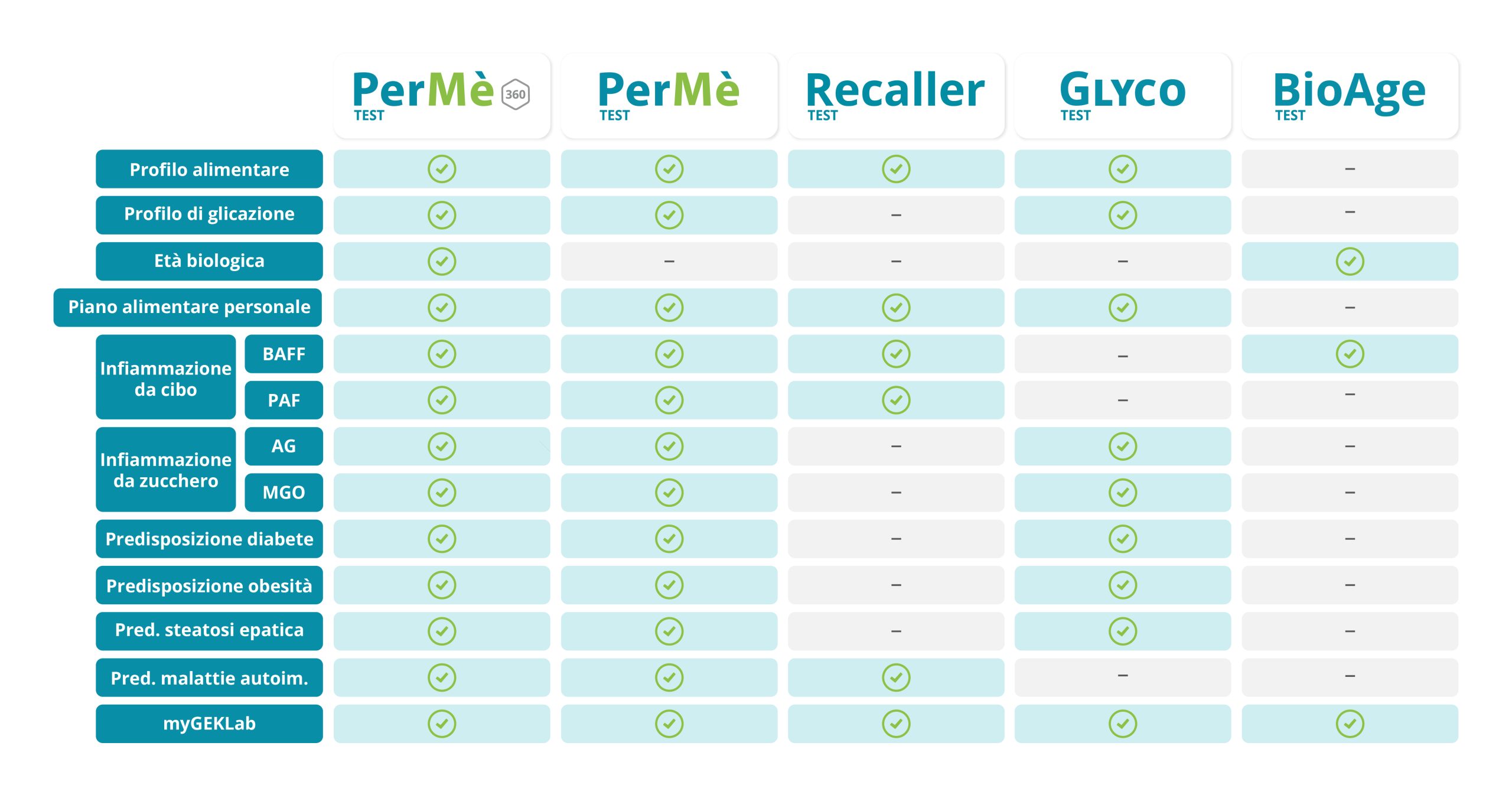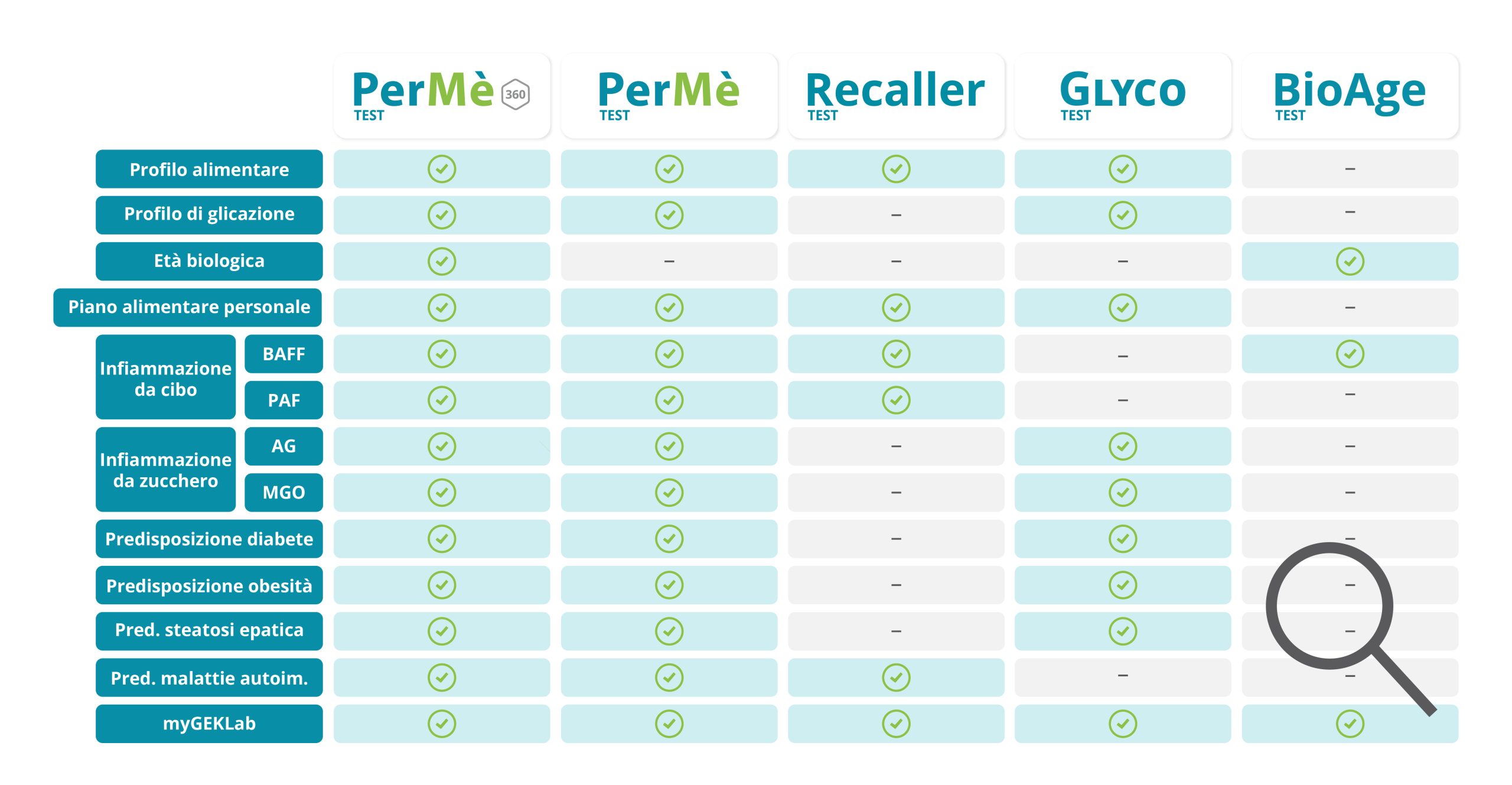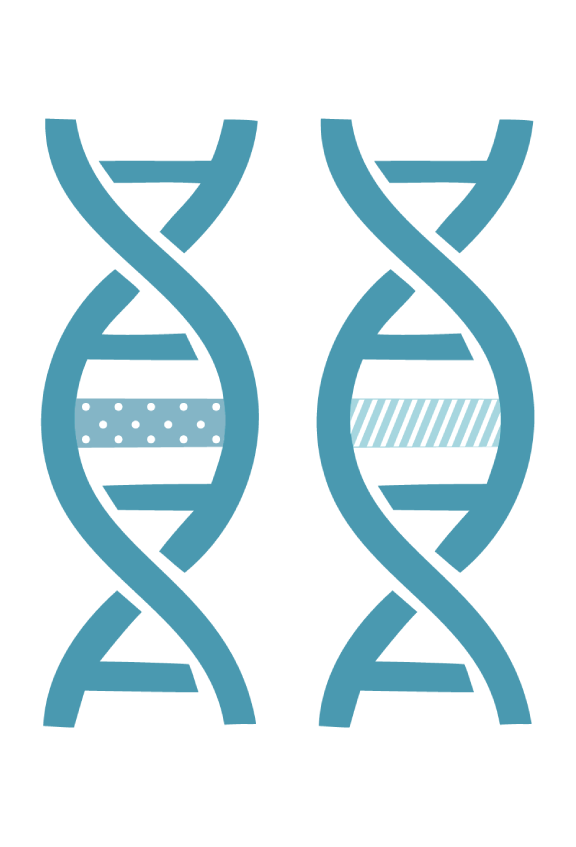
La gamma dei prodotti GEK Lab
PerMè Test ti aiuta a capire se stai consumando in eccesso zuccheri o specifici alimenti misurando l’infiammazione del tuo organismo e interpretando l’eventuale predisposizione genetica alle malattie metaboliche più significative. I medici e gli specialisti di GEK Lab, esperti di medicina di precisione, sulla base dei risultati ti suggeriranno un percorso personalizzato di tipo nutrizionale e integrativo.
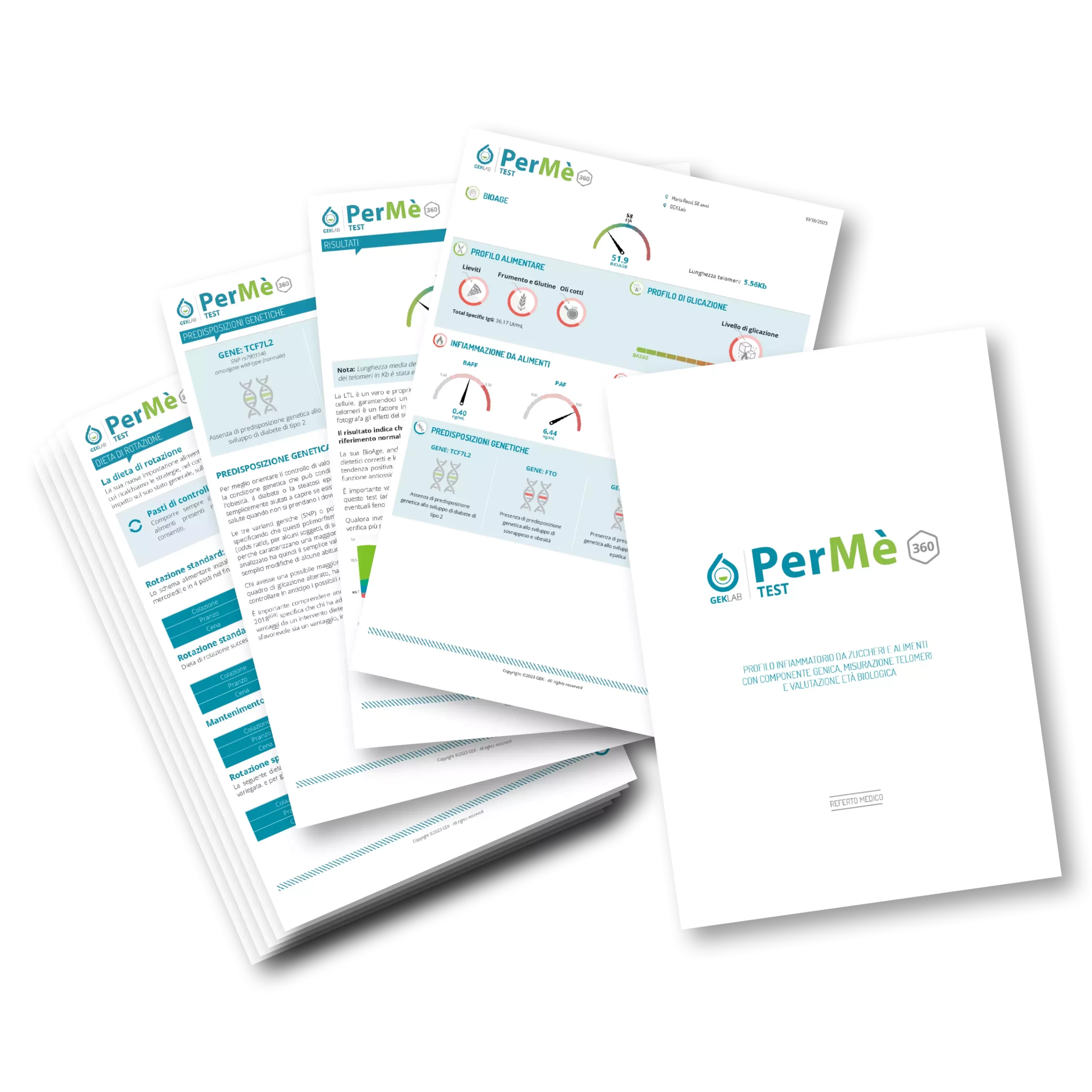
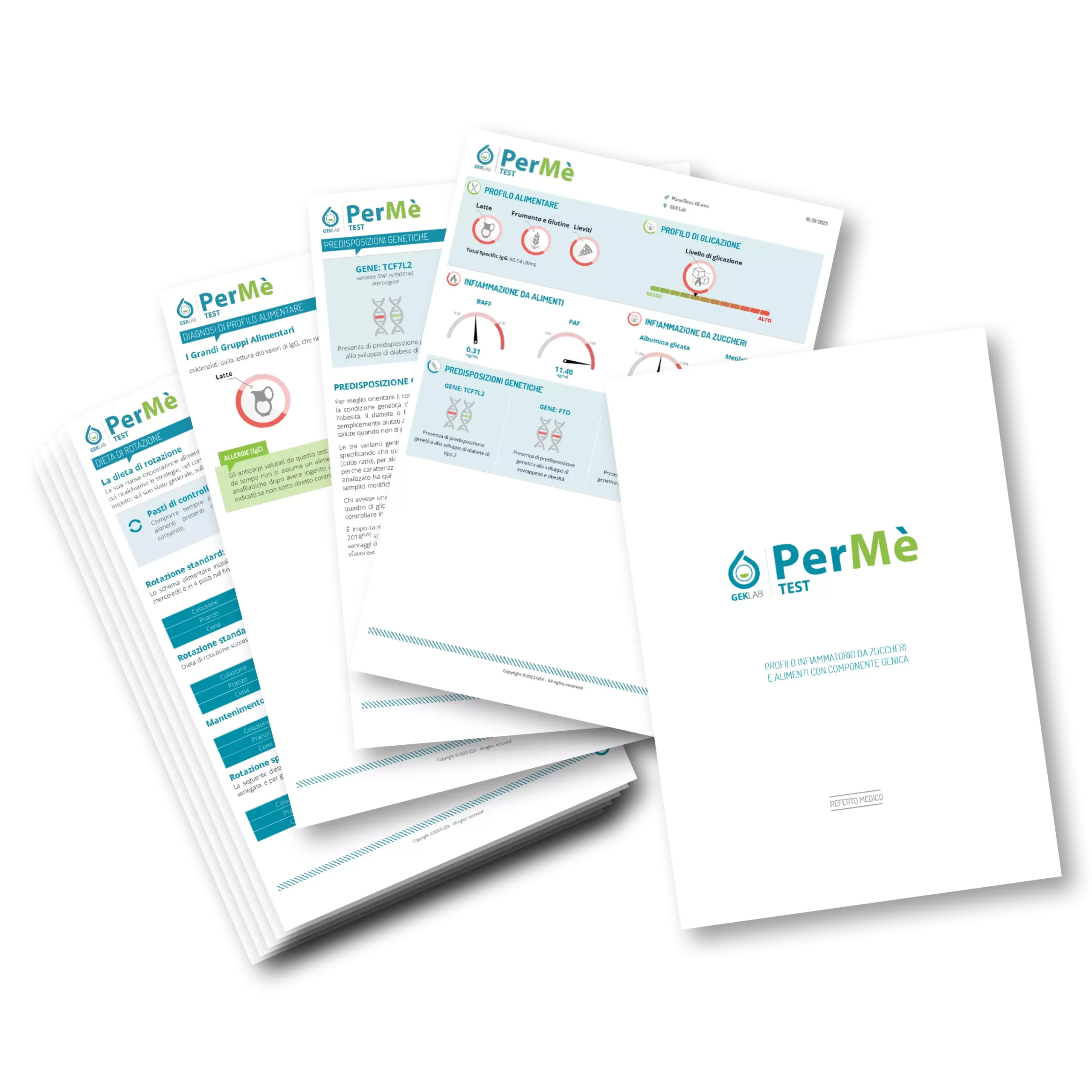


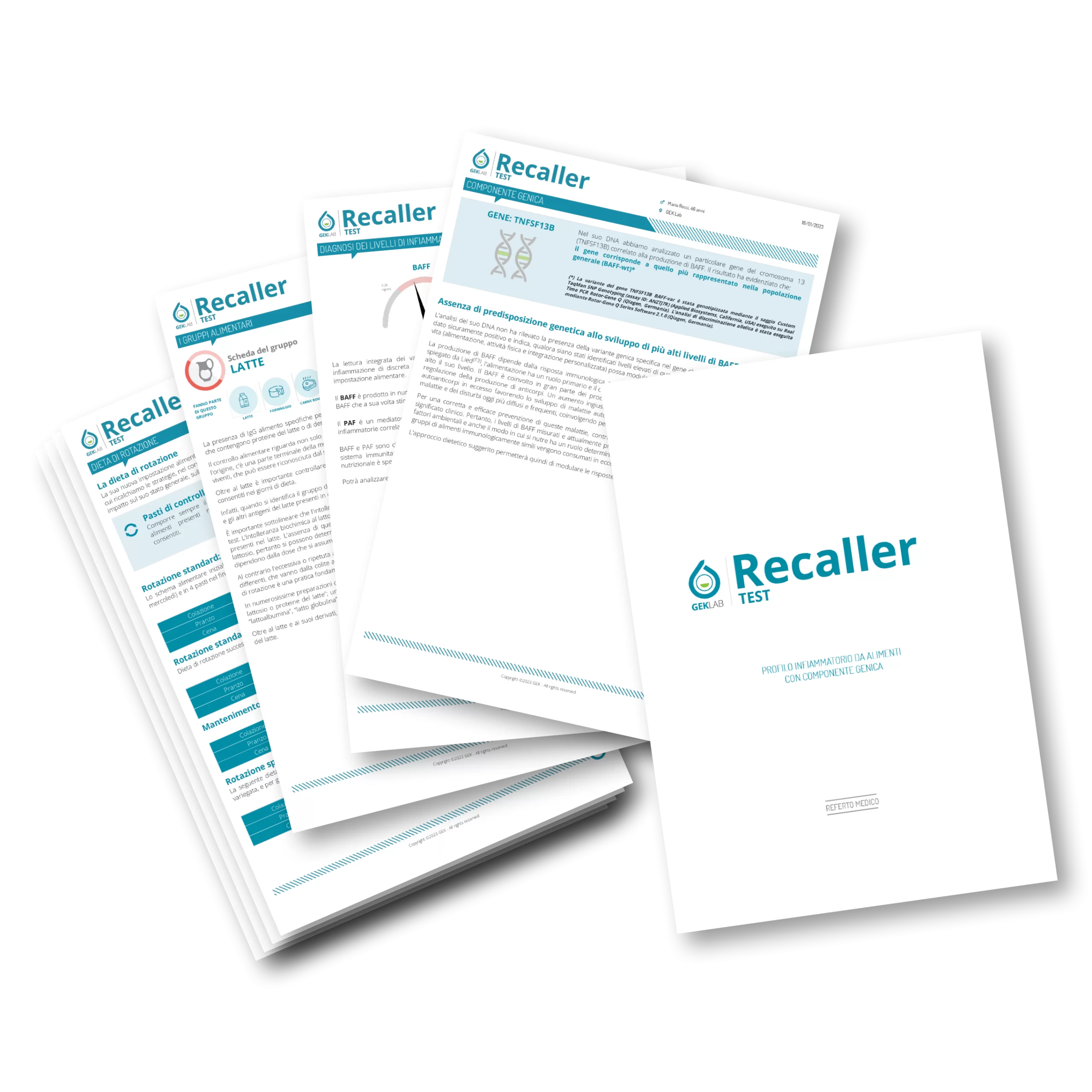

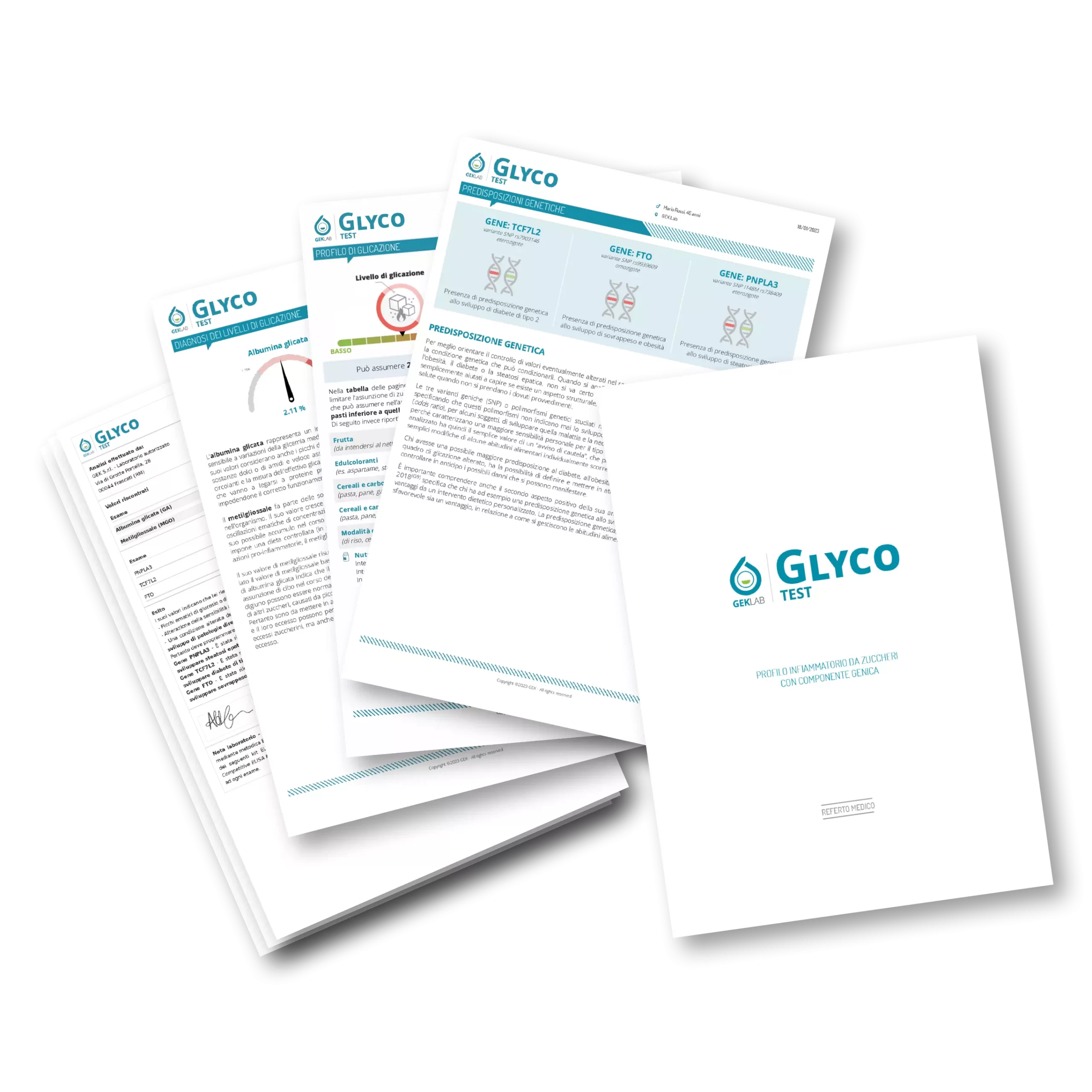

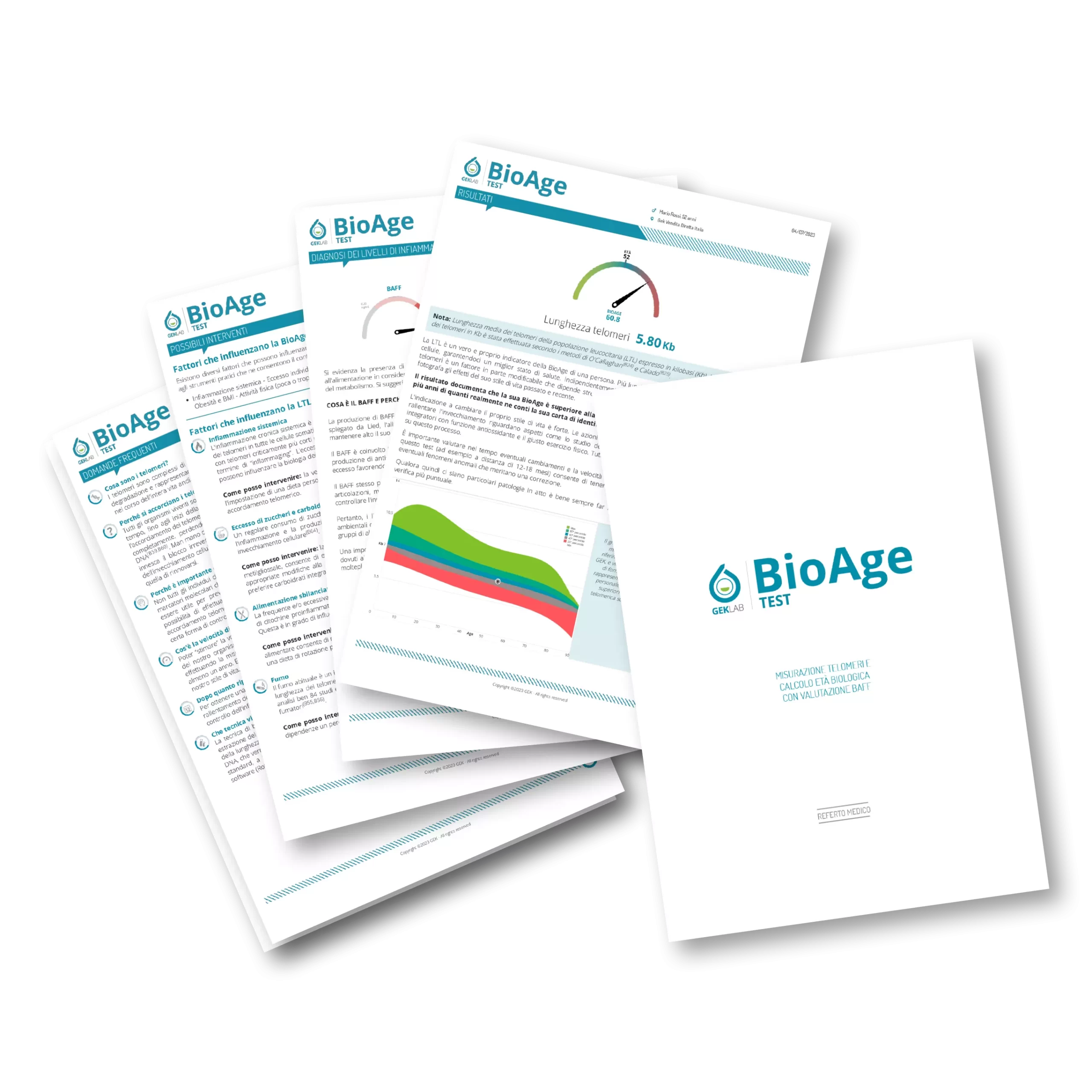

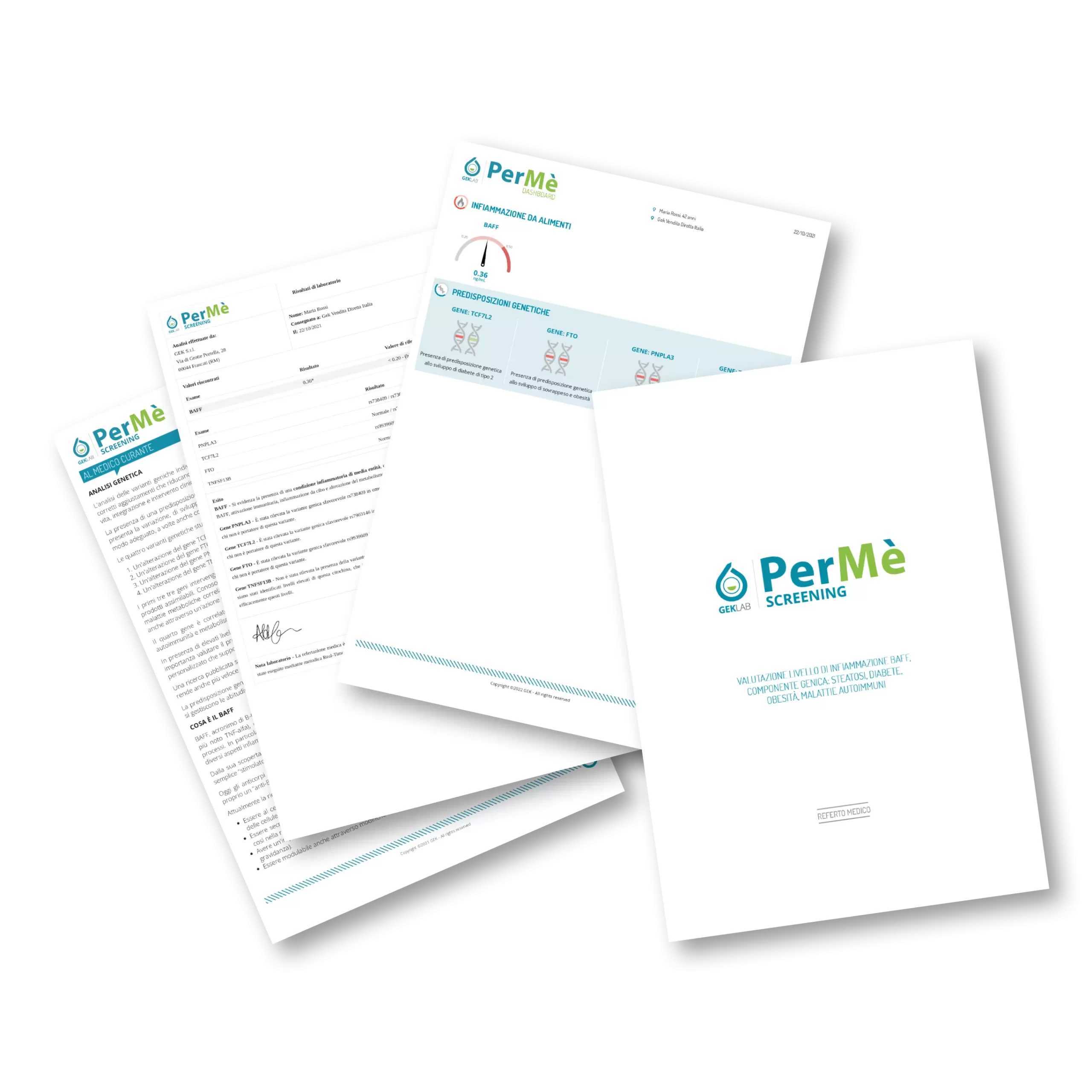
Il servizio NutriCoach ti darà accesso a una consultazione di 30 minuti, effettuabile al telefono o con strumenti di videochiamata, con un Biologo Nutrizionista GEK Lab esperto nelle infiammazioni da cibo e da zuccheri.



Infiammazione da alimenti: profilo alimentare

L’infiammazione da alimenti è determinata dall’eccessivo o ripetuto consumo di specifici gruppi alimentari, differenti per ogni persona e variabili nel tempo. Questo tipo di infiammazione può manifestarsi attraverso una varietà di sintomi e disturbi, quali il colon irritabile, la gastrite, il gonfiore addominale, l’orticaria, frequenti mal di testa ecc… L’identificazione del Profilo Alimentare Personale consente l’adozione di una dieta di rotazione personalizzata che non esclude gli alimenti, ma ne modula l’assunzione. Utilizzando innovativi biomarcatori, come ad esempio il BAFF è possibile valutare in modo oggettivo e scientifico l’infiammazione di basso grado e determinare l’intensità dietetica più adatta alle esigenze individuali.
Componente valutata nei test:


Infiammazione da zuccheri: profilo di glicazione

L’infiammazione da zuccheri è legata alla glicazione, un processo di “caramellizzazione” delle proteine circolanti che produce sostanze infiammatorie come i radicali liberi. Questo accade quando zuccheri, alcol, polioli, dolcificanti, frutta e carboidrati raffinati sono consumati in eccesso rispetto alle caratteristiche metaboliche individuali. Questi eccessi possono portare a fenomeni infiammatori rilevanti, inclusi la neuroinfiammazione, l’amplificazione di fenomeni allergici, disturbi dell’umore, aumento del rischio cardiovascolare e diabete. La misurazione dell’infiammazione da zuccheri consente una modulazione precisa e personalizzata dell’assunzione di sostanze glicanti senza la necessità di eliminare completamente gli zuccheri o sostanze affini. Inoltre, aiuta a costruire un piano alimentare bilanciato, imparando il giusto equilibrio di tutti i macronutrienti ai pasti.
Componente valutata nei test:


Predisposizioni genetiche

Nella valutazione dei profili infiammatori, è importante associare la lettura di specifici punti del DNA detti geni, correlati allo sviluppo di diabete, sovrappeso, autoimmunità e steatosi epatica. Conoscere la propria predisposizione genetica a queste malattie, insieme ai marcatori infiammatori, permette di mettere in atto strategie preventive. La genetica infatti non è determinante per lo sviluppo delle malattie a cui si è predisposti, poiché lo stile di vita e l’alimentazione giocano un ruolo chiave nel mitigare una predisposizione.
Componente valutata nei test:


BioAge: età cellulare

La misurazione dei telomeri, ovvero le parti terminali dei cromosomi, offre un’indicazione sullo stress ossidativo o infiammatorio prolungato, anche correlata all’efficienza del sistema immunitario. La loro misurazione permette di conoscere la BioAge che, confrontata con l’età anagrafica, è un utile strumento per valutare lo stato complessivo dell’organismo e intervenire su stile di vita e alimentazione per rallentare il processo fisiologico di invecchiamento.
Componente valutata nei test:


Trova il Test Perfetto per Te
Scegli il test più adatto alle tue esigenze rispondendo alle domande del nostro questionario personalizzato. La tua salute è unica, e noi vogliamo offrirti un percorso su misura. Rispondi ora e scopri quale test GEK è la scelta giusta per te.

Semplice e Affidabile
Acquista il test online o presso un centro autorizzato GEK Lab. Il nostro metodo è semplice e veloce: un semplice prelievo capillare verrà analizzato nel nostro laboratorio e refertato dal nostro team medico esperto. Scopri la comodità di prenderti cura della tua salute con GEK Lab.

Il Tuo Referto a Portata di Click
Ricevi il tuo referto medico personalizzato presso il centro autorizzato GEK Lab o scaricalo direttamente tramite il nostro servizio MyGEKLab. Accedi in modo sicuro e veloce per avere sempre sotto controllo la tua salute. Con GEK Lab, la tua wellness journey è più accessibile che mai.

Investi nella Tua Salute
Metti in pratica le indicazioni del referto per investire nella tua salute e ritrovare la forma ideale. Scopri come adottare uno stile alimentare che favorisce il benessere, riconoscendo gli effetti positivi sul tuo organismo. Il nostro servizio di consulenza nutrizionale MyGEKLab è a tua disposizione per ogni domanda: Il tuo benessere è la nostra priorità.





